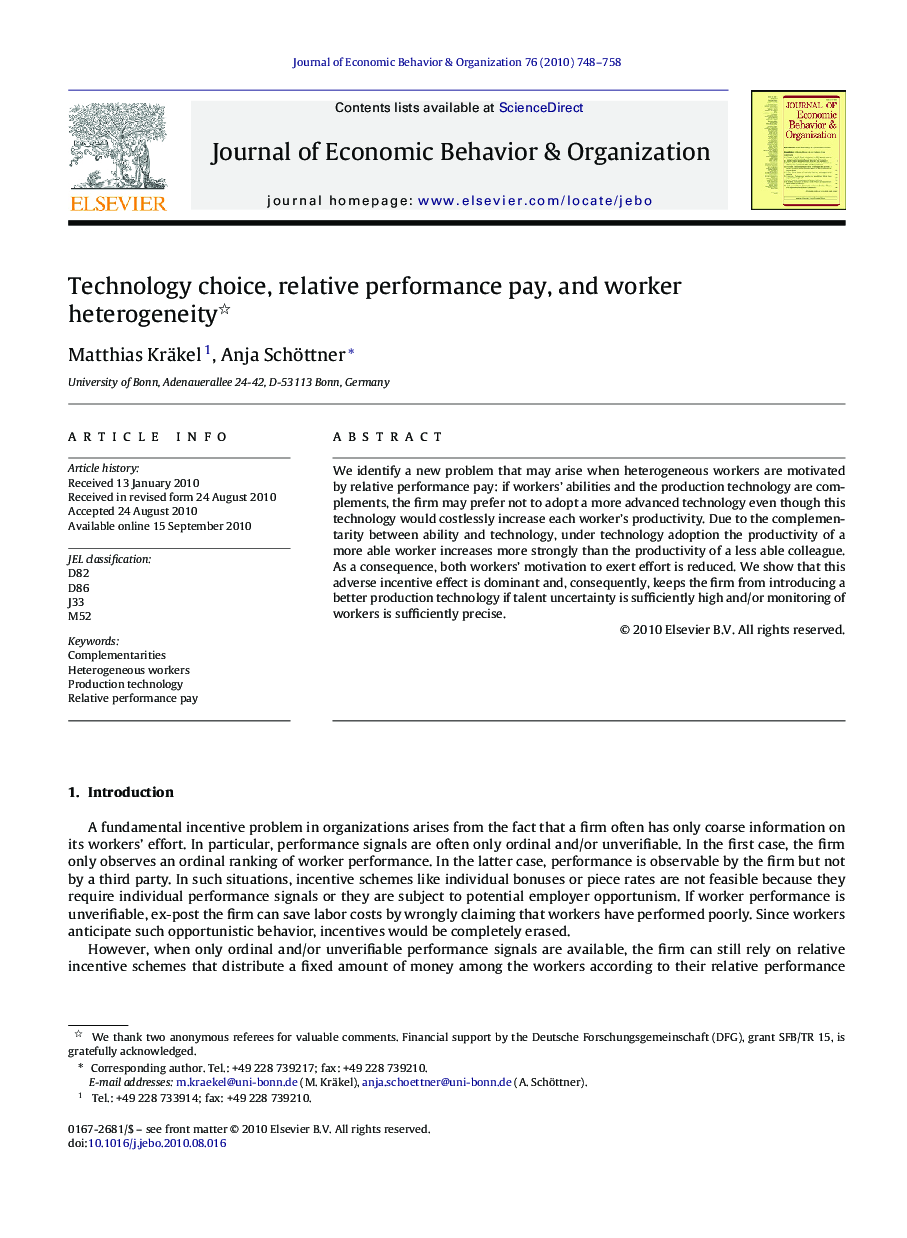| Article ID | Journal | Published Year | Pages | File Type |
|---|---|---|---|---|
| 883994 | Journal of Economic Behavior & Organization | 2010 | 11 Pages |
We identify a new problem that may arise when heterogeneous workers are motivated by relative performance pay: if workers’ abilities and the production technology are complements, the firm may prefer not to adopt a more advanced technology even though this technology would costlessly increase each worker’s productivity. Due to the complementarity between ability and technology, under technology adoption the productivity of a more able worker increases more strongly than the productivity of a less able colleague. As a consequence, both workers’ motivation to exert effort is reduced. We show that this adverse incentive effect is dominant and, consequently, keeps the firm from introducing a better production technology if talent uncertainty is sufficiently high and/or monitoring of workers is sufficiently precise.
